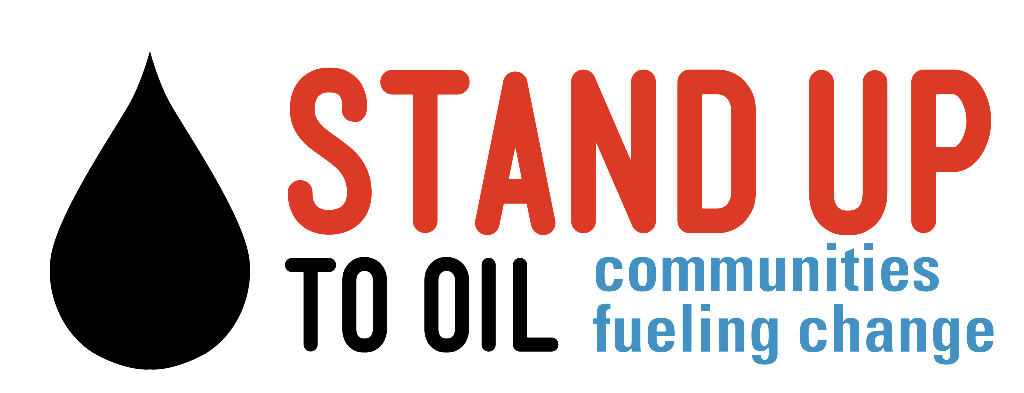Principles of the Stand Up To Oil campaign
People: Crude oil shipment and storage affect health and ways of life for communities throughout our region. Oil can affect our health in myriad ways, and those living closest to oil refineries, shipping ports, railroads, and pipelines bear the greatest risk. First Nations and Tribal Nations who rely on natural resources for sustenance and identity are particularly threatened by oil transport. Climate change that results from burning fossil fuels also adversely affects Pacific Northwest communities, and disproportionately impacts First Nations and Tribal Nations, communities of color, and lower-income communities.
Place: Crude oil industries endanger and pollute our region, threatening both inland and coastal communities. From iconic salmon and orcas to vital groundwater resources, each new pipeline, shipping terminal, oil-bearing train, and oil-laden tanker and barge increases the risk of irreparably harming our environment and communities.
Economy: Shifting communities’ reliance away from crude oil and other fossil fuels can result in better jobs and keep more dollars here in our region. Long-term, investment in clean energy and other industries that do not rely on fossil fuels will result in greater economic resilience.
Our Values
- The land we now occupy was taken from First Nations and Tribal Nations through colonization. We live on land that is not “ours.” We honor leadership from Native tribes in our region. While we seek to work with them in a campaign to protect the Pacific Northwest from oil, we do not speak for them. They are sovereign nations.
- The perspectives and leadership of First Nations and Tribal Nations and local communities are essential for identifying and supporting locally appropriate approaches and solutions. We seek to understand and support the needs of First Nations and Tribal Nations and local communities, support First Nation and Tribal Nation and local organizing and to include First Nation and Tribal Nation and local leadership in our work.
- Fossil fuels and climate change do not harm all people equally. We strive to learn about, elevate awareness of, and rectify the disproportionately greater harms on communities of color and other marginalized communities. We value and support leadership from communities that suffer most from pollution and natural resource exploitation.
- Some individuals and communities in our region currently rely on the oil industry for their livelihood. We seek to transition off of fossil fuels in a way that provides them with economic stability. We are fighting the expansion of the oil industry and its activities in our region; we are not fighting refinery workers.
- We are most effective when we work in collaboration. We value collective decision making among the various communities and SUTO member organizations that are concerned about and affected by oil in our region.
- We are dedicated to learning and listening in our quest toward a just and equitable transition away from fossil fuels.
